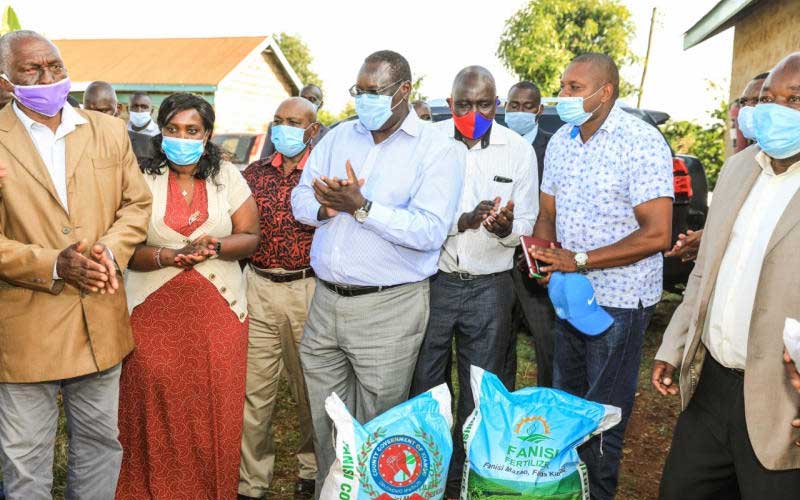×
The Standard e-Paper
Home To Bold Columnists

Governor James Nyoro (centre) when he handed over fertiliser at New Gatukuyu Coffee Farmers Cooperative Society. [Fidelis Kabunyi, Standard]
Twenty three coffee cooperative societies in Kiambu have agreed to work together to revive the sector.